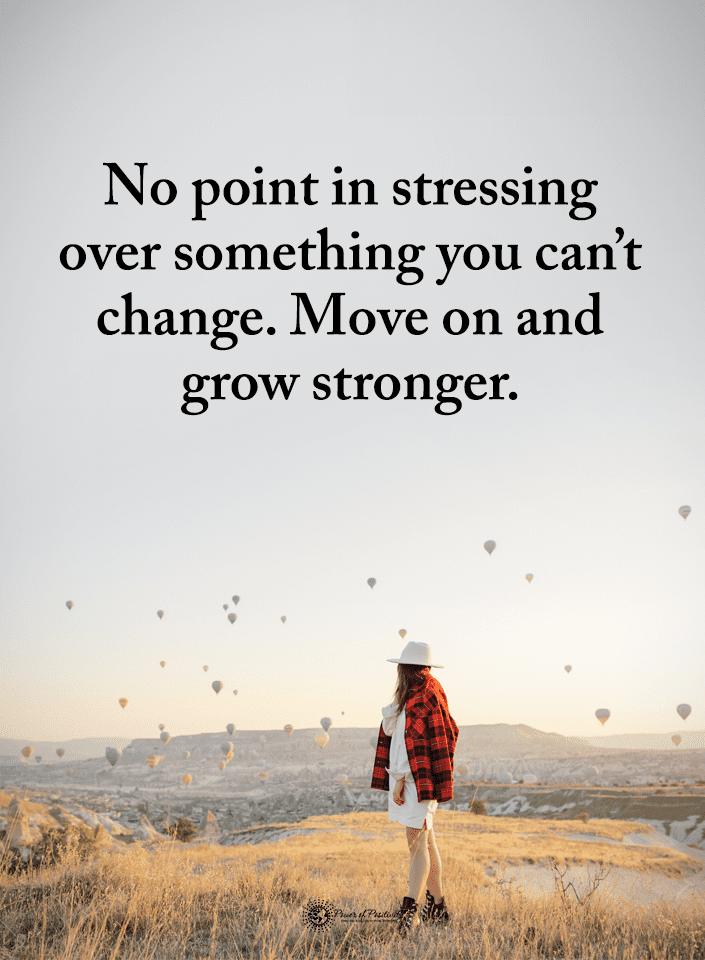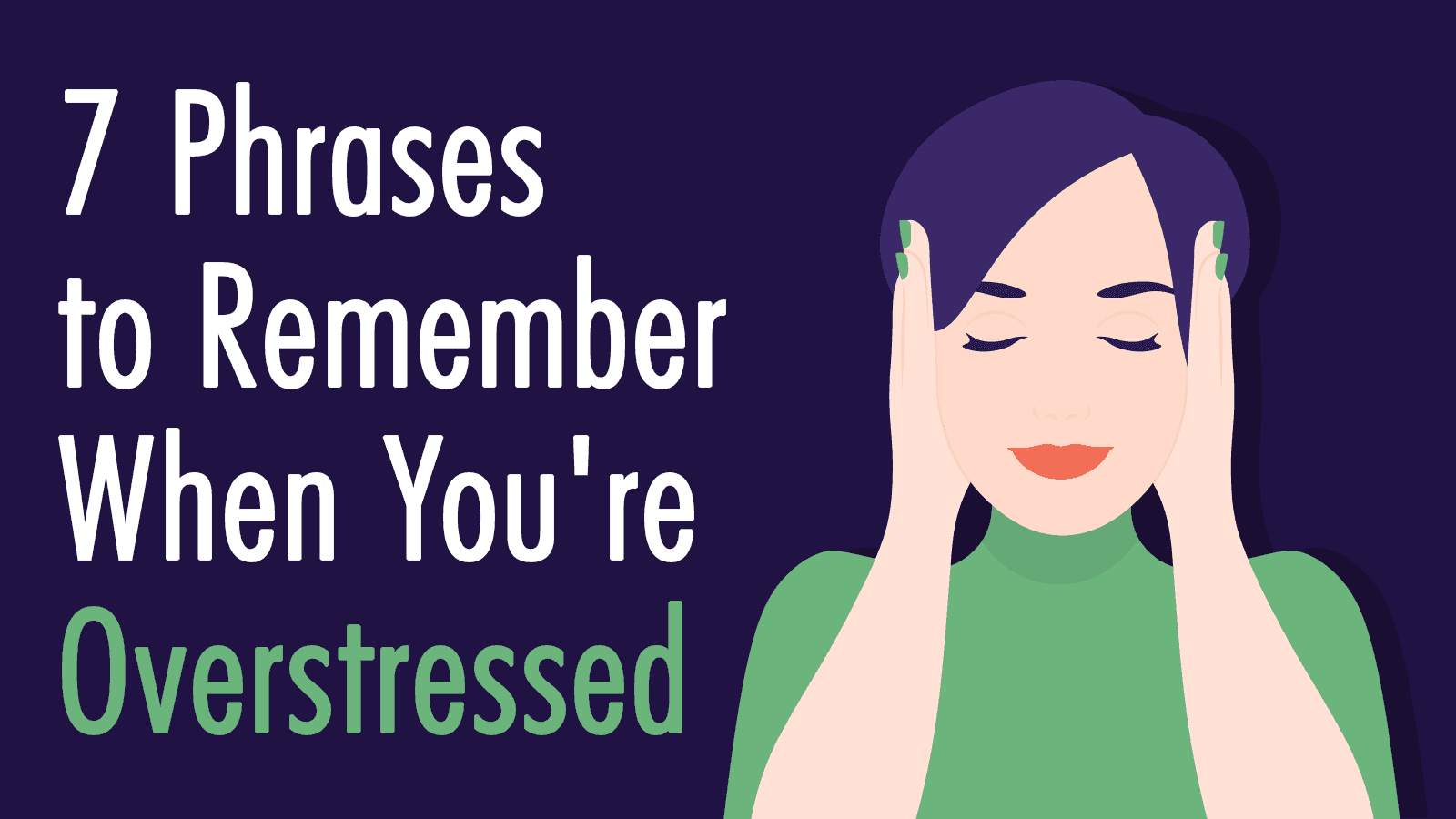Stress is no joke. Anyone who has ever felt the pressure of a time crunch or a big project at work knows how damaging stress can be. But what happens when the stress isn’t even about you?
Secondhand stress happens when you are heavily involved in someone else’s stressful experiences. This is because the body tends to mirror the actions of those you’re surrounded by naturally. Emotions, too, are often mirrored.
This happens somewhat the same way that one catches other people’s yawns. You might also compare it to how you can feel palpable tension or how happiness is contagious. But secondhand stress makes you even more susceptible to their negative emotions.
The issue with secondhand stress is that you rarely ever realize you’re experiencing it until you’re in too deep. It’s important to notice when your anxious response starts so you can take a break. Let’s discuss some signs that you may have secondhand stress.
Here Are 11 Signs You Have Second Hand Stress
“The greatest weapon against stress is our ability to choose one thought over another.” – Unknown
1. You know you feel stress, but you can’t figure out why.
Secondhand stress doesn’t come from within yourself. This means that while you recognize that you’re under pressure, you’ll be confused because you don’t think there’s any reason to be stressed.
This usually means that although someone else is stressed, you feel it too. You’d be surprised how catching this emotion can genuinely be. According to psychotherapist and author Jonathan Alpert, if you’re not setting proper boundaries around you, letting people dump their problems on you, or having trouble saying no, you’re even more at risk of catching stress.
The danger here is that most people don’t think about their anxiety levels. They recognize it and move on, even when they can’t tell for sure why that negative emotion is there. As such, you’ll want to ensure that you take note of when it’s not you experiencing the stress but someone else.

2. You notice your colleague is obviously under a lot of stress.
Do you have a colleague who always seems to be tearing their hair out? Does this correlate with your anxiety? If that’s the case, you’ve found the person responsible for the secondhand stress you’re experiencing.
So what’s the best way to avoid this? After all, you have to see your colleagues pretty much on a daily.
- Recognize the coworkers who tend to trigger that response in you. Awareness can help a lot in avoiding secondhand stress.
- Once you know who the troublesome colleague is, start limiting your time spent with them. For instance, let them know you don’t have much time to discuss something.
- Prepare yourself for the inevitable pressure so that you’re ready to manage it and prevent it from worsening.
3. You’re rushing through your usual work tasks.
A time crunch is one of the main reasons for stress. But when that time crunch is being hounded on you by a boss, colleague, or even a partner, their “downer” mood will likely spread. This means you must deal with unwanted secondhand stress on top of your pressure to meet a deadline.
If you have coworkers who tend to be very interested in planning and you haven’t been abiding by those ideas, be prepared to face some resistance. Their stress is going to be catching. Try speaking to them about balancing speed and what is possible.
4. You’re more pessimistic than you used to be.
No matter how optimistic you usually are, hanging around those who are constantly down and harmful will only bring you down. The troubling part is that this tends to happen slowly but surely, so you may not even notice it.
Pessimistic behavior often stems from having your positive thinking shot down. If you’re around someone who keeps turning away your optimistic attempts, their negativity might slowly grow on you.
If you suddenly find yourself more pessimistic than usual, take a step back and look at the situation. Why is it hard to practice positive thinking? Is someone squashing it down? Pay attention to your emotional changes and see if any external factors – or people – are causing them.
5. The stress you’re experiencing feels more dull.
We’re all pretty familiar with how stress feels. You might feel exhausted or debilitated when you’re experiencing this emotion yourself. But secondhand stress might seem a little different than that. It might feel distant from you, giving you the idea that it is less severe.
But don’t underestimate secondhand stress! It’s far from a positive thing! It can have all the typical effects of firsthand stress when you experience it for long periods, including:
- Digestive issues
- Cholesterol imbalance
- Lack of sleep
- Diet and appetite change
- Anxiety
So even if the emotion doesn’t feel severe, or seems separated from you, don’t discount it! Stress management is always a good idea.

6. You’re experiencing brain fog.
While not an officially defined medical condition, brain fog is defined by symptoms and stress. These include the following signs:
- Loss of memory
- Lack of concentration or focus
- Inability to think clearly
- Disorganized, confused thoughts
- Trouble voicing thoughts, feelings, or ideas
- Mental exhaustion
If you’ve been experiencing these symptoms, take a look around you. They could be caused by someone you spend a lot of time around. Most of the time, a colleague might be responsible.
Why does this happen? When your brain picks up on stress, it starts to enter survival mode. These instincts require a lot of focus as they are designed to keep you ready for threats. Unfortunately, this also means your everyday cognitive function will suffer. These environmental cues prevent your brain from thinking clearly.
7. Your ideas are no longer original.
If a boss or coworker pushes you to complete tasks more quickly, this can be completely counterproductive. Instead of increasing your efficiency, you’re likely to stop being efficient altogether.
You also might find that you start churning out boring and unoriginal ideas. Your manner of completing tasks could grow tedious. As a result, your colleagues or employer will be even more annoyed with you, thinking you’ve lost your spark.
- What is happening here is that the brain focuses on survival due to the high stress levels.
- Creativity takes time and brain power, and it involves risks.
- The brain doesn’t want risks for fear your anxiety will worsen, so it only presents you with monotonous concepts.
- The brain will then become solely task-focused, messing up any creativity you once had. This is a key sign of secondhand stress.
8. Someone is experiencing stress at home.
Is your kid coming home from school laden with homework? Maybe their final exam is coming up? Or maybe your partner is stressed about their work? Perhaps a family member is going through a rough time?
When stress and negativity are inside your house, it can be challenging to escape it. Home is where you naturally feel safe and let your guard down. For this reason, stress permeating your humble abode can be challenging to avoid.
It’s important to allow your family member to cool off and process things independently. But if they tend to bottle things up, then they may not process their stress well. Try to encourage them to talk to you about what’s wrong to help alleviate their negative emotions. Helping them feel more positive can work wonders for the whole family.
9. You’re feeling more tired than usual.
If you’re always tired, you might be affected by secondhand stress. Maybe your friend has been high-strung lately or going through a bad break-up. Perhaps you’ve supported a family member through grief or complex work projects.
When you invest emotional time and energy into helping others, you might burn yourself out. Although being there for someone else in their time of need is a noble cause, make sure your own mental health is not suffering. It is alright to take a step back once in a while. It does not make you selfish! You can’t care for someone when you’re out of commission, too.
10. You unwittingly expose yourself to secondhand stress.
There are various things in everyday life – habits, routines, and other things you do – that could put you at risk. For instance, if you get email notifications regularly, they could be pulling your attention away from work. Notifications cause your body to experience a startle response that messes up your focus. If those emails have an annoyed tone from a coworker, then the secondhand stress gets even worse!
In addition, studies have found that just a few minutes spent watching bad news on the television will give you a 27% higher chance of feeling unhappy during the day. Your work may also become less productive, which might drive up your boss’s anxiety, too. Bad news, especially regarding tragedies, can cause you to feel more stressed out. Manage your habits well and prevent accidentally exposing yourself to stress.
11. You have standard stress symptoms but don’t feel stressed out.
Secondhand stress can be sneaky. Sometimes, you don’t realize you have it until you’re completely exhausted. This is because you might not openly feel the same things you experience during firsthand stress.
What you will notice, though, are other physical symptoms you might not realize are from extended pressure, including:
- Digestive troubles or stomach pain
- Difficulty sleeping
- Drop in motivation
- Headaches
- Muscle pain
- Lack of concentration
- Exhaustion and fatigue
- Irritability and snappishness
- Anxiety
By recognizing these physical symptoms, you can attribute them to secondhand stress before it becomes too serious.
Final Thoughts On Signs You Have Second Hand Stress
Secondhand stress can be very taxing on the body. When surrounded by people who cause you to experience this issue, it can have terrible effects on your productivity, concentration, and positive thinking. Awareness of these signs can allow you to balance your emotions before it takes its toll on you. Caving in under your own stress is challenging enough – don’t cave in under someone else’s!


















